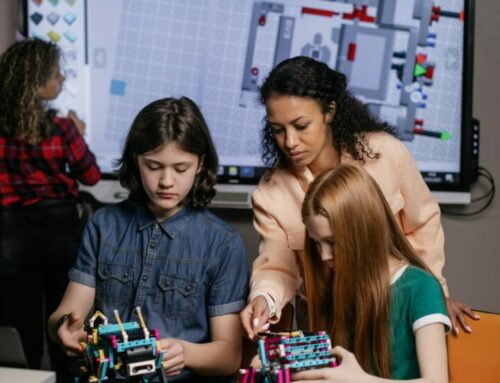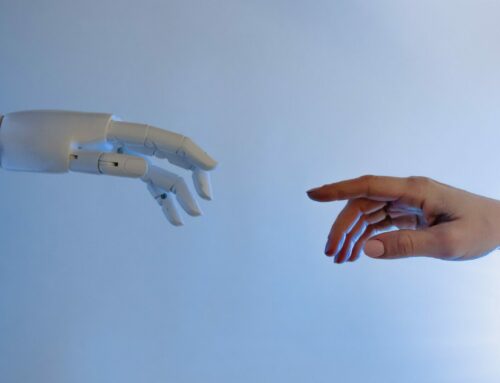Knowledge for the Global Common Good
Patrick Blessinger and Enakshi Sengupta
Since the dawn of the Industrial and Democratic Revolutions (circa 1800 CE), the impact of human activity on the planet has accelerated and the human species has become, for better and worse, the dominant influence affecting life on planet Earth. In some ways (for example, major decreases in illiteracy, poverty, child mortality), the world has become significantly better off since the dawn of these revolutions. In other ways (for example, major increases in mass carbon emissions and deforestation), the world has become worse off over the course of these revolutions. The development of the sustainable development goals is aimed at addressing these deficiencies.
Within this historical context, and within the more modern context of globalization and the development of the sustainable development goals, the world has also emerged into a global knowledge society where access to much of the world’s knowledge base is now available to anyone with a smartphone. With the development of new forms of knowledge production and the instantaneous ways to disseminate that knowledge, the democratization of knowledge continues to accelerate and the world’s storehouse of knowledge continues to grow at an exponential rate as more people become knowledge producers and not merely knowledge consumers.
However, one of the paradoxes of knowledge is that while an increasing number of people have access to an increasing amount of knowledge, the world continues to be plagued with a growing set of global problems (for example, climate change, refugee crises, poverty, illiteracy). Also, not all knowledge is high-quality knowledge so people must become more discerning consumers of knowledge. Thus, while having access to knowledge may be a necessary condition for human progress, it is not a sufficient condition.
The importance of knowledge
Pierre Bourdieu identified three forms of human capital – cultural, social, and economic. All three forms of capital represent accumulated power (that is, the ability to act with agency and influence others). Hence, all else being equal, the more accumulated capital one has, the more influence one possesses. However, what is important is not simply the amount of influence that one possesses but how that influence is used constructively and ethically to make the world a better place.
Social capital consists of one’s social networks, group memberships, and affiliations. Social capital is the product of one’s friends, neighbors, colleagues, and other people with whom one is associated. Simply put, social capital is the result of one’s interactions with other people. The value of one’s social capital also depends on the quality of one’s participation in social networks, the level of trust within social networks, as well as the benefits gained from participation in social networks. Indeed, in the digital age, these types of intangible assets (for example, knowledge, skills, participation, trust, reputation) have become more valuable than tangible assets.
Cultural capital is acquired through one’s particular culture (for example, via education, family, peers, religion, media) and exists in three states – embodied, objectified, and institutionalized. Simply put, it is the effect of one’s accumulated socialization on one’s social status. Cultural capital is the accumulation of a person’s knowledge, skills, values, and behaviors that determine, to varying degrees, one’s social standing and mobility. Thus, in a world of hyper-connectivity and hyper-interdependence, acquiring cultural capital is important for one to navigate socially, both vertically and horizontally.
Knowledge for human development
In modern societies, through the emergence of mass learning, much of this knowledge gets codified into different forms and artifacts (for example, written text, audio and video recordings, and artwork). The benefit of transforming knowledge into physical forms is that it more readily allows for the storage, transformation, and dissemination of knowledge across space and time. Indeed, the free flow of ideas and the freedom of expression are essential elements of a healthy democracy.
Thus, perhaps the most important quality of a knowledge society is its capacity to apply knowledge for human and social development. Without new knowledge, there can be no social progress. New knowledge is a product of the human mind where it is either discovered or invented. Humans discover knowledge that already exists in the world such as the objective facts of the universe (for example, the sciences). Humans then codify this knowledge into forms that can be communicated to others across space and time. Indeed, one of the hallmarks of modern civilization is the ability to transmit accumulated knowledge from one generation to the next.
Humans also invent new knowledge as a result of human reasoning and creativity. The language of mathematics, for example, is one of the most powerful inventions of the mind because of its far-reaching utility and impact (that is, it allows humans to understand their environment by abstracting the world in precise and comprehensible ways). In addition, art is one of the most powerful products of the mind because of its ability to allow for the expression of human emotions and imagination.
Knowledge for the common good
Since the first human civilizations, knowledge has been regarded as perhaps the most important asset in humanity’s struggle to survive. Knowledge facilitates the production of more knowledge to create a virtuous cycle of knowledge creation (for example, how to create systems of communication, how to build organizations and societies, how to establish systems of rights and justice). Also, the creation of capital can be exchanged, to varying degrees, for other types of capital. As such, knowledge, and its application as a common good, is the most important asset that humans possess.
Since the consumption and production of knowledge are key to human and social development, it is important for society to have a high-quality educational system that is oriented around lifelong and lifewide learning. To achieve this aim, we first need a change in mindset that recognizes lifelong learning as a human right, that continuously cultivates a culture of learning in all its forms (informal, formal, nonformal), and that treats knowledge as a common good for the common good. In the modern world, knowledge is now a necessity for life as are food, air, and shelter.
UNESCO, commenting on re-thinking education and its purpose as a common good, reflected that it can be achieved through a humanistic approach to education with a foundation on ethics and values. UNESCO states that education should be “…based on respect for life and human dignity, equal rights, social justice, cultural diversity, international solidarity, and shared responsibility for a sustainable future.” (pg. 10) which UNESCO sees as the basis for our shared humanity.
This reality has major implications for society and for the educational system at all levels. One implication is the need to respect and value all forms of knowledge and all ways of knowing (for example, local knowledge, indigenous knowledge). Another implication is the need to make knowledge freely available to society. For example, MIT, with its OpenCourseWare initiative, has made all of its course content freely accessible to the public. By making its course content freely available to the world, forward-thinking institutions like MIT are helping to build a brighter future for all.
Dr. Patrick Blessinger is an adjunct associate professor of education at St John’s University, New York City, and chief research scientist for the International HETL Association.
Dr. Enakshi Sengupta is Chairperson of the Business Department at the American University of Afghanistan.
Suggested Citation:
Blessinger, P. and Sengupta, E. (2022). Knowledge for the global common good, Higher Education Tomorrow, Volume 8, Article 4. https://www.patrickblessinger.com/knowledge-for-the-global-common-good
Copyright © [2022] Patrick Blessinger and Enakshi Sengupta
Disclaimer
Opinions expressed in this article are those of the author, and as such do not necessarily represent the position(s) of other professionals or any institution.




